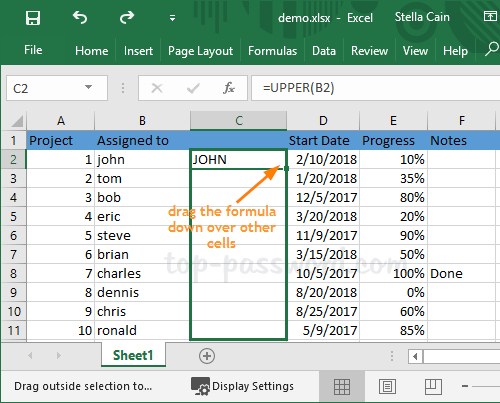During those years when you're menstruating, you're at risk for iron deficiency anemia due to blood loss -- especially if you have heavy periods. When you're anemic, your system doesn't have enough iron to carry around oxygen, leaving you feeling tired and out of energy. Throughout your adult life, you need 18 milligrams of iron every day. When you become pregnant or start nursing your infant, though, you'll have to get 27 milligrams and then 9 milligrams daily, respectively.
You can get iron from any type of meat, various cuts of poultry or even eggs. All women of childbearing age need folate, also known as folic acid in its synthetic version, or vitamin B-9. Folate is primarily responsible for creating new cells, which happens very quickly during pregnancy. During the first few weeks of pregnancy, folate can help prevent neural tube defects that affect your growing baby. These defects tend to occur long before you ever realize you're pregnant, making it essential to get folate in your daily diet during this stage of your life.
Women generally need 400 micrograms of folate daily -- or 600 micrograms daily during pregnancy. After delivery, if you nurse, you'll need 500 micrograms a day, the Institute of Medicine recommends. You can also get folate from avocados, green vegetables, peanuts and fortified rice or breakfast cereals. B vitamins work with each other to improve your metabolism by converting carbohydrates, proteins and fats into energy.
You'll have the oomph you need to get you through those long hours at the office and that strenuous workout routine you may do when you get out. Whole grains, fortified breakfast cereals, beef, pork and poultry are just some of the dietary sources of B vitamins. One can be especially susceptible to iron deficiency anemia if they do not get enough red meat or rich leafy greens in their diet. And let's face it, eating that iron-rich diet all the time can be difficult!
A slow-release iron supplement capsule can help you get your recommended daily value without thinking too hard. Part of the reason why so many women fail to get the amount of iron they need is because one of the best sources of iron is red meat which also contains high levels of saturated fat. Other foods rich in iron include poultry, seafood, dried fruit such as raisins and apricots, and iron-fortified cereals, breads, and pastas. Among other things, you need calcium to build healthy bones and teeth, keep them strong as you age, regulate the heart's rhythm, and ensure your nervous system functions properly. Calcium deficiency can lead to, or exacerbate, mood problems such as irritability, anxiety, depression, and sleep difficulties.
If you don't get enough calcium in your diet, your body will take calcium from your bones to ensure normal cell function, which can lead to weakened bones or osteoporosis. Women are at a greater risk than men of developing osteoporosis, so it's important to get plenty of calcium, in combination with magnesium and vitamin D, to support your bone health. Folate or vitamin B9 is another nutrient that many women don't get enough of in their diets. Folate can greatly reduce the chance of neurological birth defects when taken before conception and during the first few weeks of pregnancy. Folate can also lower a woman's risk for heart disease and certain types of cancer, so even if you're not planning on getting pregnant , it's an essential nutrient for every woman of childbearing age. In later life, folate can help your body manufacture estrogen during menopause.
Because vitamin B12 occurs naturally only in animal products, vegans and some vegetarians should take B12 supplements. Getting enough folic acid is critical for all women who may become pregnant in order to reduce the risk for neural tube, or spinal cord, defects. Since 1998, many foods such as breads, cereals, and pastas have been fortified with folic acid, which is a step in the right direction. Women contemplating pregnancy, however, should be sure to get 400 micrograms of folic acid daily, typically through a supplement. For many women, "these tend to be the childbearing years," says Suzanne R. Steinbaum, DO, director of Women's Cardiovascular Prevention, Health, and Wellness at Mount Sinai Hospital in New York City. If you're planning to get pregnant, start taking a prenatal vitamin with folic acid and B-complex.
Folic acid reduces the risk of neural tube birth defects and other B vitamins help support a healthy pregnancy. Taking these vitamins may also reduce your babies' autism risk. Women with heavy menstrual periods may need extra iron too, says Dr. Steinbaum. During your late 20s, you should start paying attention to your calcium and vitamin D intake to protect your bones, since women have a high risk of bone loss with increasing age. Calcium is the primary component of bones, while vitamin D increases calcium absorption, improving skeletal strength. Each day, you need to get 1,000 milligrams of calcium and 15 micrograms of vitamin D.
You can get both calcium and vitamin D by drinking fortified milk. Some types of breakfast cereals are also fortified with both calcium and vitamin D. Get even more calcium by eating dark leafy green veggies or drinking fortified orange juice. Eating salmon, anchovies or tuna can further up your vitamin D intake. Although there's no doubt it's important for our health, the exact amount we need can be somewhat confusing.
The recommended daily allowance calls for about 75 milligrams daily for women and 90 mg for men, yet not everyone agrees. If you prefer to get your vitamin C through food, Brill recommends a half-cup of raw red sweet pepper , a medium kiwi , or a medium orange . Other foods rich in vitamin C include strawberries, kiwi, cantaloupe, and broccoli. Although it's important for women in their 20s to get enough folate, there's a fine line between the right amount and too much. The UL is 1,000 micrograms per day of folic acid from supplements and fortified foods; there isn't a risk with dietary folate.
The main concern with exceeding this limit is that high blood levels can hide a B12 deficiency which, if allowed to persist, can result in permanent neurological damage. Calcium is an important mineral for maintaining healthy bones. It can also help to reduce the loss of bone mineral in post-menopausal women. To achieve this, you should consume 1200mg calcium daily from all food sources.
Calcium can be found in green leafy vegetables, soy products, cheese, yoghurt, milk, nuts and fish where you eat the bones. Vitamin D becomes even more important in your forties, Dr. Steinbaum says. Low levels of vitamin D have been linked to a host of diseases—from cancer and autoimmune conditions to diabetes and obesity—and our risks for many of these tend to increase with advancing age. "Get your blood levels of vitamin D tested to see where you stand and supplement accordingly," she suggests.
This holds for men and women in their fourth decade—you may be low and not even know it. It's almost impossible to get all the D you need from food alone and almost none of us gets enough sun in the era of sunscreen, so D supplements may be necessary. And don't forget your omega-3s either, as heart disease risk climbs with age for men and women, she shares. High doses of nutrients can also cause mild to severe side effects. It can also increase calcium blood levels, which can cause vascular and tissue calcification and damage to the heart, blood vessels and kidneys.
Iron is very important for women, especially those who still have their period, are pregnant or breastfeeding. Women need healthy iron levels to support normal red blood cell formation and oxygen transport. Most natural sources of iron come from animal products, like red meat. You should be getting all the vitamin B12 you need if you eat a varied and well-balanced diet. However, as you get older, it can become harder to absorb vitamin B12, which is found in foods like meat, cod, salmon, milk, cheese, eggs and fortified cereals. Taking a supplement can therefore be helpful for some people.
According to government dietary recommendations, adults need 1.5µg of B12 daily. Most multivitamins contain B12 but you can also find it as a single ingredient supplement. Supplements can be used to get the recommended daily allowance of vitamins and minerals you need for a healthy body. While it's best to get your vitamins and minerals from eating a well-balanced diet, a supplement can give your body a boost.
Vitamin D is vital in calcium and phosphorus absorption, and in doing so, lessening the risk of osteoporosis. Studies show that regular intake of vitamin D, whether through supplements or food, can reduce the risk of the said cancer by 50 percent. Getting enough calcium is critical to keeping our bones healthy, not to mention the heart, nerves, and muscles. The NIH recommends that women 19 to 50 years old and men 19 to 70 get 1,000 mg a day.
That goes up to 1,200 mg a day for women starting at age 51 and for men after 70. As with many nutrients, getting calcium through your diet, and not a supplement, is ideal. Good choices include low-fat dairy , fortified cereals and juices, and sardines. Iron helps to create the hemoglobin that carries oxygen in your blood. It's also important to maintaining healthy skin, hair, and nails. Due to the amount of blood lost during menstruation, women of childbearing age need more than twice the amount of iron that men do—even more during pregnancy and breastfeeding.
However, many of us aren't getting nearly enough iron in our diets, making iron deficiency anemia the most common deficiency in women. There is evidence that many people may have inadequate dietary intake, and also research associating low magnesium levels with higher risks of all kinds of health problems. The benefits of actual supplementation are still being studied.
For the time being it has not been very common for allopathic generalists to check magnesium levels in outpatients, but this may change as the research base grows. As you get older and enter your 30s, your bone health needs to become a top concern. So many women develop osteoporosis, or porous, weak bones as they get older and enter menopause. You can prevent this disease or slow your body's development of osteoporosis by increasing your bone density with calcium supplements. Taking calcium each day will also prevent bone loss, which can help you look younger and stronger.
It helps our bodies absorb calcium from our diet and supplements we may take. Vitamin D also plays a role in the development and maintenance of healthy bones. And researchers are beginning to find that good vitamin D levels are important for general health and the prevention of certain diseases, including osteoporosis. Omega-3s are important for heart and blood vessel health and for reducing circulating triglycerides to lower heart disease risk. These special fats also support healthy joints, reduce inflammation and optimize brain operations. Some research has tied poor omega-3 intake to moodiness and depression.
Almost all your body's calcium is found in your bones and teeth. And since women are four times more susceptible toosteoporosis than men, getting enough is essential for lifelong bone health. The remaining 1% is critical because calcium plays a role in heart and muscle action, blood clotting and normal cell function.
In addition to vitamins, foods provide other nutrients that supplements do not, such as protein and fiber. You can get vitamin D from foods such as swordfish, salmon, tuna fish, eggs and fortified cereals and breads. Foods rich in B12 include clams, liver, trout, salmon, milk and fortified cereals. Folate can be found in liver, spinach, black-eyed peas, asparagus, Brussels sprouts, lettuce, avocado, broccoli and rice. However, dairy products such as whole milk, cheese, and yogurt also tend to contain high levels of saturated fat.
Just be aware that reduced fat dairy products often contain lots of added sugar, which can have negative effects on both your health and waistline. I read several groups of people are at risk of low levels, including older adults. So along with calcium and Vit D increases, it'll be interesting to see in fall 2018 the effects of supplementation with my annual doctor visit. During your late 20s, you need certain vitamins and minerals to increase your energy levels, promote blood health and protect your skeleton.
These nutrients will keep you healthy throughout your child-bearing years. You might be able to get all of the nutrients you need simply by taking a daily multivitamin, but you should discuss your supplement use with your doctor beforehand. High amounts of certain vitamins and minerals can interact poorly with medications you are taking. The recommended daily allowance for vitamins and minerals is the average daily intake a person needs to avoid deficiencies and stay healthy. Men and women often have different vitamin and mineral recommendations. It also makes DNA and RNA, the building blocks of cells, and prevents the changes in DNA that can lead to cancer.
Adults and children need it to build normal red blood cells and prevent anemia. But it's especially important for pregnant women because it helps prevent birth defects like spina bifida. My grandmother was taking a daily dose of 1k for years per her doc, and when someone finally tested her levels her vitamin D was only in the teens. It sounds like you wouldn't have tested for that because she was already taking a daily supplement?
Perhaps we just got lucky it was discovered at all if the standard approach is to just not check for it. It's a shame it wasn't detected/corrected earlier since obviously I want my grandma to be as healthy as possible. Nobody really has any idea what their vitamin D levels are until it's tested.
What vitamins should I take daily for a 20 year old female Vitamin D will help your body absorb that extra calcium you're taking, and it supports heart health and can even help you if you are trying to lose weight. Natural vitamin D comes from the sun, but if you work a full time office job or don't have the opportunity to get out that much, a vitamin D supplement can give you all the nutrients you need. Folic acid is an important nutrient for cellular reproduction and cell growth. Folic acid is a B vitamin commonly found in prenatal vitamins. It is an important nutrient especially for pregnant women because it helps to prevent potential birth defects in their unborn babies, especially brain and spine mutations. However, you do not have to be pregnant to get benefits from folic acid, and you don't have to be expecting or even trying to become pregnant to take prenatal vitamins.
While controversial, some research suggests a potential danger of calcium supplements, including an increased risk of heart disease. Make sure to talk with a healthcare professional for personalized recommendations when it comes to calcium supplements . When you're young, having the time of your life eating all the things, drinking, and staying up late, it's no surprise that your body, skin, and overall health might suffer.
"Fiber provides bulk to prevent constipation, can aid in lowering cholesterol, and provides good intestinal health, as soluble fiber supports the growth of good bacteria," Dr. Powell explains. In a perfect world, we would get enough fiber through fruits, veggies, and whole grains in our diet. The problem is, current recommendations are for eating 25 to 35 grams a day, and most people get only about 15 grams of fiber. Avoid misleading catch phrases such as 100-percent wheat, stone ground, and multi-grain, because they're typically not whole grain products. Anemia can deplete your energy, leaving you feeling weak, exhausted, and out of breath after even minimal physical activity.
Iron deficiency can also impact your mood, causing depression-like symptoms such as irritability and difficulty concentrating. While a simple blood test can tell your doctor if you have an iron deficiency, if you're feeling tired and cranky all the time, it's a good idea to examine the amount of iron in your diet. I also know some about of this topics .I would like to sharing for of all you .The D vitamin is the only vitamin that is not obtained from foods that are consumed. Instead, the D vitamin is actually obtained by sunlight on the skin. There has been a lot of media coverage about the dangers of getting too much sun but it is essential that the skin is exposed to sunlight to obtain the recommended daily allowance of the D vitamin. Vitamin D is essential for the absorption of calcium, which we need for strong bones.























No comments:
Post a Comment
Note: Only a member of this blog may post a comment.